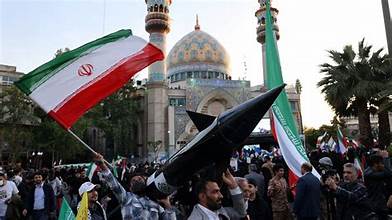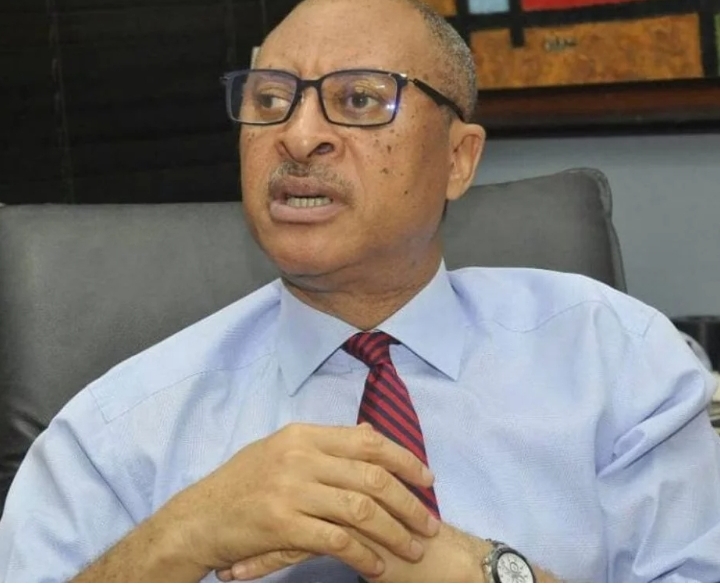
By James
Kindly share:
United Kingdom’s Foreign, Commonwealth, and Development Office, FCDO, has issued a fresh advisory to it’s citizens against visiting areas in Nigeria because of the spike in insecurity, such as violent crimes, terrorism and kidnappings.
The Foreign Travel Advice was published on GOV.UK yesterday, despite the Presidency’s claim that terror-related deaths in Nigeria since 2015 had decreased by 81 per cent.
However, according to the FCDO advisory: “Insecurity is increasing across Nigeria. Kidnapping, violent crime, and intercommunal violence occur throughout all regions of Nigeria.”
It enjoined British nationals to be extremely cautious, review safety procedures, and ensure they had contingency plans in place before visiting the affected areas, comprising Borno, Yobe, Adamawa, Gombe, Katsina, and Zamfara states.
It noted a “high and increasing threat from Boko Haram or Islamic State West Africa, particularly around transport hubs, religious areas and large gatherings,” and warned that “humanitarian personnel, vehicles, supplies, and infrastructure can be targeted by terrorists and criminals.”
Furthermore, the UK government warned it’s citizens against all but essential travel to Bauchi, Kaduna, Kano, Kebbi, Jigawa, Sokoto, Niger, Kogi, Plateau, and Taraba states, as well as the outer suburbs of Abuja within the Federal Capital Territory.
“Violent crime, often involving firearms, has increased and spread from the outer suburbs to more central, wealthier areas of the city,” the FCDO said.
“British government staff in Nigeria have been advised to restrict travel to an area broadly within the Abuja metropolitan area.”
It also identified protests in Abuja as potential flashpoints, saying “there are protests in Abuja from time to time, which can turn violent.
‘’Monitor local media, avoid demonstrations and large gatherings, and follow instructions from local police and security forces.’’
It highlighted a particularly alarming picture of the North-east region, where “regular military operations are ongoing in Adamawa, Borno and Yobe states”, adding that the place remained “a risk of retaliatory attacks.”
It pointed out to those in Maiduguri: “If security were to deteriorate any further, it could be extremely difficult for you to leave the city.”
The FCDO also cautioned against all travels to the South-south, especially “the riverine areas of Delta, Bayelsa, Rivers, Akwa Ibom and Cross River states.”
“Militant groups are active across the Niger Delta and have carried out many attacks on oil and gas infrastructure.
There’s a high risk of armed robbery, criminality and kidnap” in the region.
On the South-east, the advisory also raised concern, noting that “attacks and violent clashes often occur with the military and other security forces.”
“Although foreign nationals are not normally targeted, there is a risk you could be caught in an attack.”
Lagos was not spared n the FCDO advisory, which noted violent crimes, such as “mugging, kidnapping, car-jacking and armed robbery” as “common, particularly in the larger cities” in the South-west.
It advised travellers to “be cautious when travelling in Lagos, particularly on the mainland,” and to avoid moving around at night.
Finally, the FCDO urged those currently in high-risk areas to “be alert and take any security advice given by your hotel, employer or your hosts,” and to “make sure your safety procedures and contingency plans are up to date.”
Meanwhile, the Presidency has noted a significant drop in terror-related deaths since 2015.
In a statement posted on its official X account, the Presidency said: “Since 2023, the federal government, through enhanced inter-agency cooperation, has vigorously pursued, arrested, eliminated, or successfully convicted terrorists and insurgents, especially those responsible for some of the most heinous attacks on Nigerian territory.
“Since 2024, over 124 terrorists and insurgents have been successfully convicted, while others, including members of the Ansaru leadership and those responsible for the Owo Church bombing in 2022, as well as the Yelwata (Benue) reprisal and counter-reprisal attacks, are undergoing trial in various courts.”





